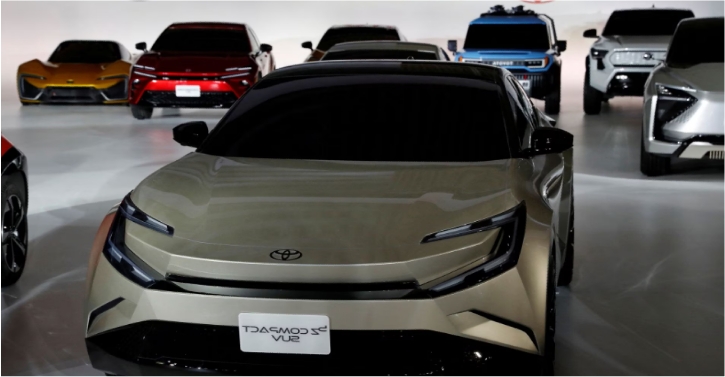
Toyota Motor Corp’s chief scientist, Gill Pratt, has made a significant statement regarding the role of battery electric vehicles (BEVs) in combating climate change within the automotive industry. Pratt emphasizes that relying solely on BEVs is not a comprehensive solution due to limited resources. Toyota, which has faced criticism for its comparatively slower adoption of BEVs, defends its approach by highlighting the viability of gasoline-electric hybrids, particularly the popular Prius model, in specific markets and for certain drivers.
Pratt acknowledges that BEVs can have a positive impact on reducing climate change, especially in countries like Norway with abundant renewable infrastructure. However, in regions where coal remains a primary power source, hybrids prove more effective in reducing CO2 emissions. Pratt stresses that while battery materials and renewable charging infrastructure will become more accessible over time, the extensive scaling required for battery material mines, renewable power generation, transmission lines, and seasonal energy storage facilities will demand decades of development.
Toyota sets ambitious goals, aiming to sell 1.5 million battery-powered vehicles by 2026 and introduce ten new fully electric models. The company maintains a consistent stance that achieving carbon neutrality necessitates a mix of hybrid, fuel-cell, and BEV technologies. In a previous report by Reuters, former CEO Akio Toyoda advocated for the Japanese government’s equal support for hybrid vehicles, warning of potential repercussions for the auto industry if hybrids were not prioritized alongside BEVs.
Aligned with this perspective, Toyoda, currently Toyota’s chairman, reiterates that BEVs are indeed a critical option for achieving carbon neutrality. However, he also underscores the significance of hydrogen as another viable solution. Toyota remains committed to various alternative powertrain technologies, promoting a balanced approach to address climate change and fulfill sustainable mobility objectives.
The statements from Toyota’s top scientists and executives illustrate the company’s position that BEVs constitute a significant part of the solution. However, Toyota emphasizes the importance of considering other options, such as hybrids and fuel-cell vehicles, depending on specific market conditions, infrastructure availability, and power generation sources. By advocating for a comprehensive and adaptable approach, Toyota aims to contribute effectively to the global efforts in combating climate change and achieving a sustainable automotive future.
Moreover, Toyota’s focus on hybrid technology has yielded impressive results. The company’s pioneering Prius model, introduced over two decades ago, continues to be an industry benchmark for fuel efficiency and reduced emissions. Toyota’s expertise in hybrid systems has enabled the widespread adoption of this technology, making a tangible impact on global carbon emissions. The success of the Prius serves as a testament to Toyota’s commitment to continuous improvement and its dedication to providing sustainable mobility solutions.
As Toyota forges ahead, it remains dedicated to advancing the potential of fuel-cell vehicles as well. Hydrogen fuel-cell technology offers an alternative to conventional internal combustion engines, producing zero emissions while offering longer driving ranges and shorter refueling times compared to BEVs. Toyota’s Mirai fuel-cell vehicle has been making significant strides, demonstrating the company’s dedication to exploring diverse pathways to a greener future.
Beyond its product lineup, Toyota actively collaborates with various stakeholders to drive sustainable change. The company engages in partnerships with governments, energy companies, and infrastructure providers to accelerate the development of renewable energy sources, charging networks, and hydrogen infrastructure. By fostering collaborations and sharing knowledge, Toyota aims to create an ecosystem that supports the widespread adoption of environmentally friendly vehicles.
